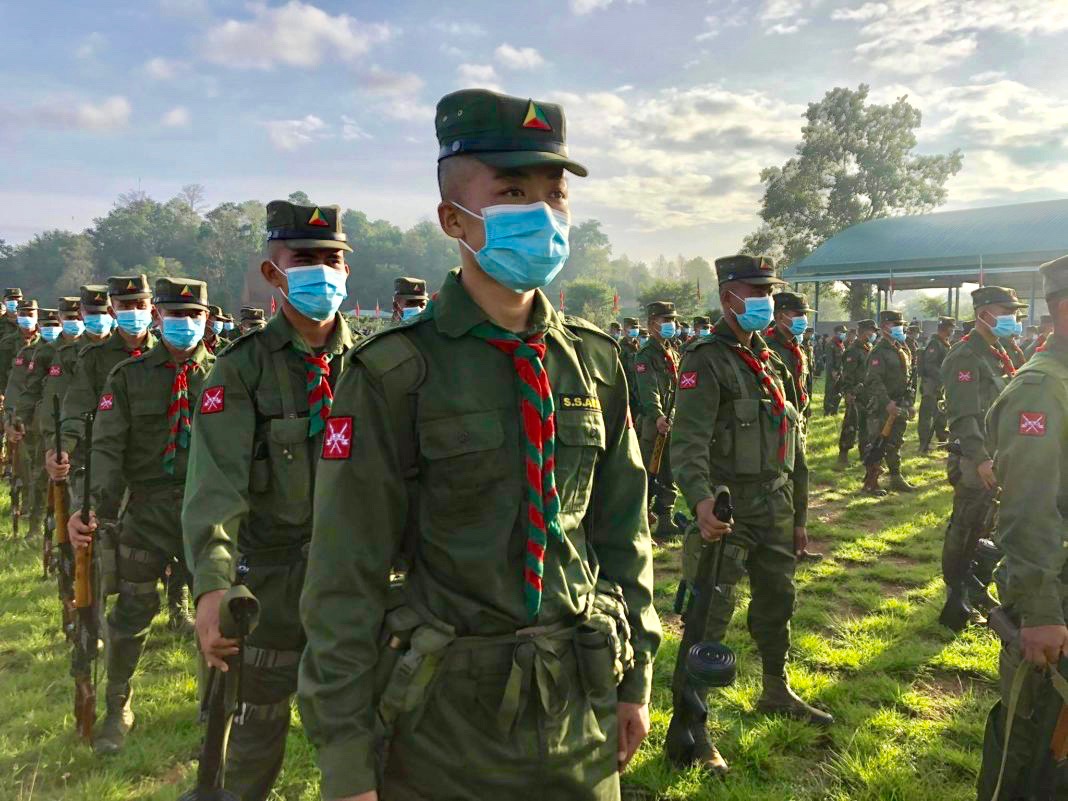|
|
|
The peoples of Myanmar are presently struggling with three grave challenges: a coup, conflict and Covid-19. This new TNI briefing analyses how these three crises have unfolded, leading to health system collapse, a new cycle of humanitarian emergency and deepening political divisions within the country. Taking a narrative approach, the report focuses on the consequences of state failure, the impact of Covid-19 and the actions taken by different military, political and civil society actors during a time of national breakdown.
Special attention is paid to community perspectives, the plight of at-risk populations, the neglect of ethnic conflict, the issues of peace and justice, political and health schisms, international dilemmas, and the attendant challenges in addressing Covid-19. Great suffering has already occurred. But the vision must be that the Covid-19 response serves as a model for equality and inclusion rather than regression and division. Health is a human right for everyone, and this primacy must not be lost sight of amidst political breakdown in the country.
See the complete list of all the Myanmar briefings.
|
|
|
|
 Shan State Progress Party troops in PPE masks at Shan Revolution Day, Wanhai / Photo credit Tai Hun Mai / S.H.A.N. Shan State Progress Party troops in PPE masks at Shan Revolution Day, Wanhai / Photo credit Tai Hun Mai / S.H.A.N.
|
|
|
|
|
|
|
| |
No One Left Behind?:
Covid-19 and the Struggle for Peace and Justice in Myanmar
Myanmar Policy Briefing Series #25
30 November 2021
|
Key Points
- Following the assumption of power on 1 February 2021 by the military State Administrative Council, Myanmar has slid into ever-deeper crisis. Compounding the worsening situation is a new wave of Covid-19 infections that have spread to all parts of the country. Every sector of society has been affected. With the government’s health system all but collapsed, the peoples of Myanmar have been thrust into the precarious position of addressing the pandemic with little or no assistance. The three “Cs” – covid, coup and conflict – have come together in a terrible collision.
- During 2020, the looming scale of the crisis indicated the need for cooperation between the key actors in national politics to combat the disease. Even before the SAC coup, Myanmar did not have a response capacity that covered the whole country. For its part, the National League for Democracy administration pledged a policy of “No One Left Behind”. This promise was not delivered by the authorities, and United Nations calls for a global “Covid ceasefire” were not acted upon.
- The peoples of Myanmar are now paying a heavy price. Testing was fragmentary, the security forces disrupted non-governmental programmes in the ethnic conflict-zones, and an equitable system of vaccine rollout was not prepared. Instead, the socio-political landscape became dominated by the rivalry between the two leading actors in national politics: the NLD, which won the November 2020 general election; and the national armed forces (Tatmadaw), which seized control of government on 1 February.
- A perfect storm was created, and the health crisis has exponentially worsened since the SAC takeover. In one of the poorest countries in Asia, there are huge limitations in health infrastructure, medical supplies, human resources, monitoring, personal protective equipment and emergency response to address Covid-19. Communities from every ethnic background lack access to essential health facilities and reliable information about the virus.
- Adding to the emergency, the country is in the midst of one of its most volatile periods of political turbulence since independence in 1948. Covid-19 is not the only crisis facing the country. Rather, its emergence – and the inability to cope – have further exposed the political failings and long-standing need for peace, reconciliation, consequential reforms, and end to military rule.
|
|
|
|
|
|
| |
|
|
|